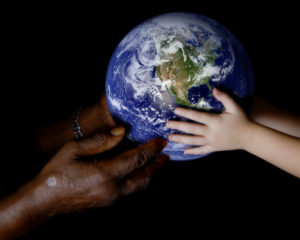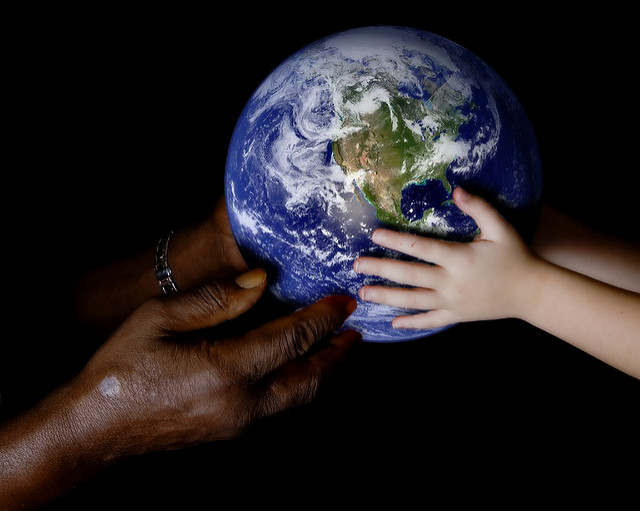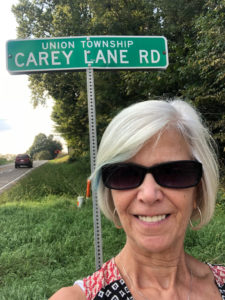 Reading Michelle Obama’s biography, “Becoming,” I began to think about what the concept of other means to me. The former First Lady writes about how some Americans tried to define her family as other. Different. Not sharing the same values. Not living in the same ways, eating the same foods, or shopping at the same stores. Some even said her husband was born in some other country.
Reading Michelle Obama’s biography, “Becoming,” I began to think about what the concept of other means to me. The former First Lady writes about how some Americans tried to define her family as other. Different. Not sharing the same values. Not living in the same ways, eating the same foods, or shopping at the same stores. Some even said her husband was born in some other country.
We hear the word other a lot in political discourse. It’s used to divide people, as in the case of the Obamas, or it can be a way for individuals seeking public office to define themselves through policies and positions. As voters, when we don’t like what a public official has done, or hasn’t done, we seek a candidate who will do what we want — pass the Equal Rights Amendment or lower taxes, change immigration policies or fund schoolchildren.
I’m a simple thinker. It seems to me that we’re all other? Right? Anyone who is not you, is other than you.
Simple, and perhaps too simple for some, but that definition led me to memories of another simple place – kindergarten — where most of us learned the Golden Rule that governs playground behavior and follows us through life. The rule that we should treat others as we want to be treated. We sometimes say, “Love thy neighbor.” This practice of love and care for another is a universal message of humankind.
In my tradition as a practicing Episcopalian, I confess that I have not always loved my neighbor. Of all our beautiful liturgy, I’ve chosen to take this line to heart, to meditate on, and to put into practice because sometimes, I fail so miserable at it.
Love thy neighbor can be hard to put into practice when driving I-40 at Rush Hour or at 3 a.m. when the dog next door barks incessantly, or even at the Thanksgiving table with family members. Challenging, yes, but I want to love my neighbor, my other.
The word other is often code language used to incite fear. In ancient days, humans were so afraid of the unknown and undiscovered that early explorers marked maps with “Here there be dragons,” (Hic sunt dracones La). As I meander through life, I welcome warnings about territories full of unknown and dangerous beasts, but my concern these days is that the very word other has led to a harmful, and hurtful, practice of othering.
For the Obamas, othering led to name calling, meanness, and attempts to push the family to the margin. The Obamas stood firm as a family bound in their love, their belief in kindness, and their hope for all people. With “When they go low, we go high” Michelle Obama helped me see the practice othering is used to marginalize people. It has also become my personal call to action. And so, I began investigating, with a hope of understanding, what other and othering meant to me.
First, I decided upon my simple definition of “not me is other.” Today, that works for me.
Second, I’m reading outside my usual news and information sources gathering knowledge which shapes my thinking. I recently began reading an interesting publication, “The Journal of Othering and Belonging” from the University of California at Berkeley, that is dedicated to understanding and challenging inequality. Conversations with friends and colleagues allow me to explore and understand our differences and our similarities.
When I am part of conversations that strike me of othering — putting someone or a group of people at the margin by use of power, privilege, or resources — will I take action? Will I ask questions and explore understanding? Do I want an open dialog? Will I judge and condemn? Will I remain silent?
I don’t expect to change the world. I hope to change myself. I’ve been the woman in a room full of men. I’ve been a white faculty member on a historically black campus. I am a cis-gendered person of a non-gender-conforming child. I’ve been Christian among Jews, the priest’s wife among agnostics and atheists, and the blonde American in Beijing. Some of these situations felt commonplace and comfortable while others challenged long-held beliefs. But in each, I was different, other.
Philosopher John Locke argued our capacity for understanding is what makes us human.
Each day is an opportunity for me to voyage a bit farther afield into this complicated, entwined world to learn and become a bit more human, a bit more me.
Kate M. Carey lives and writes in Lexington, NC while counting the days until she can retire to the beach.


There are no comments
Add yours